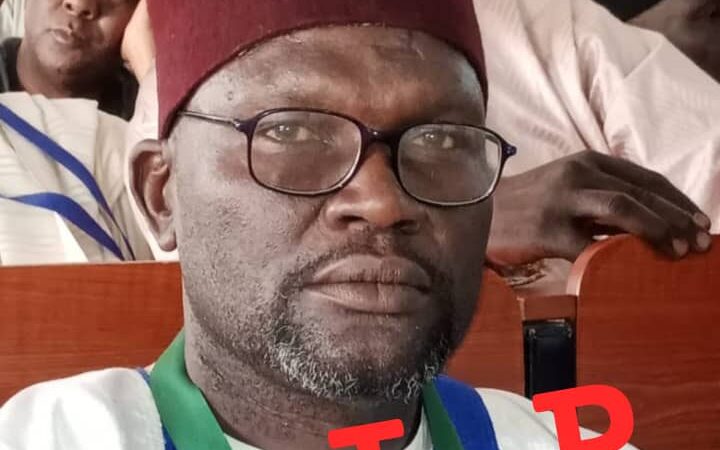Navigating the Future of Journalism: Media Credibility, Investigative Reporting, and the Role of AI

By Zannah Ibrahim Mustapha
Editor -In -Chief Kanempress Digital Hub
8th December 2024
The Wole Soyinka Centre for Investigative Journalism’s 4th Amplify In-depth Media Conference & Awards, in the last two days on-line conversations, unanimously raised the issue of ethical journalism, technology and credibility, misinformation and disinformation form part of the major highlights of the events.



In an era where the line between truth and fiction can be blurred by technology, the 4th Amplify In-depth Media Conference held by the Wole Soyinka Centre for Investigative Journalism (WSCIJ) in Lagos gathered some of the sharpest minds in journalism to confront pressing questions about the future of media. With artificial intelligence (AI) rapidly altering how news is gathered, shared, and consumed, the theme of this year’s conference—“Media Credibility, Investigative Reporting, and Artificial Intelligence”—could not be more timely.



The conference, which took place both virtually on Sunday, 8th and Monday 9th December, and in person for the award at the MUSON Centre in Lagos, brought together a diverse range of journalists, media professionals, and experts to explore the ethical, financial, and technological challenges facing the media industry.

Opening Remarks: The Call for Ethical Journalism
The Executive Director and CEO of WSCIJ, Motunrayo Alaka, opened the event with a powerful reminder of journalism’s central role in fostering transparency and societal progress. In her remarks, Alaka underscored the urgency of addressing AI’s growing influence on media credibility. “As technology evolves, so too must our commitment to truth,” Alaka stated, stressing that journalists must use their platforms not only to inform but to improve society. She called on the media to embrace the power of AI while maintaining the highest ethical standards to ensure public trust is not compromised.
AI and the Ethics of Journalism: Keynote Insights
The keynote presentations generally shed lights on the complexities of integrating AI into investigative reporting. Spoken passionately about the dual-edged nature of AI. “We cannot afford to be passive consumers of technology,” they warned. While AI holds immense potential to aid journalists in data analysis and fact-checking, they stressed the importance of being critical and proactive in how we use AI, particularly in redefining the media landscape with civil society’s input.
The Managing Partner of Wowo Media,Tolu Ogunlesi, followed with an examination of the ethical dilemmas AI poses for journalists. He pointed out that while AI can streamline news gathering, it also raises significant questions about accountability and the potential for misinformation. “Skepticism is essential,” Ogunlesi urged, noting that journalists must maintain a critical eye, particularly as AI-generated content becomes more prevalent. He warned that without human insight and judgment, AI could compromise the integrity of the news cycle.
Editor at the International Center for Investigative Reporting (ICIR), Victoria Bamaso, reflected on how AI has already begun to shape the media industry. She noted that many influential media figures from the past have been replaced by AI-driven content, raising concerns about the loss of human judgment in storytelling. “AI makes journalism easier, but we must not lose sight of the critical role that humans play in ensuring accountability and trust,” Bamaso said.
Collaborating for Stronger Journalism: Jeff Lowenstein’s Vision
In a compelling address, the Executive Director of the Center for Collaborative Investigative Journalism, Jeff Lowenstein, made the case for collaboration in the face of technological disruption. Lowenstein suggested that AI should be seen not as a replacement for journalists but as a tool to enhance teamwork and improve investigative outcomes. “Journalism should not be about competing in a silo; it should be about collaboration, using AI to strengthen the collective power of the media,” Lowenstein explained. His message was clear: human insight, combined with AI tools, could lead to more comprehensive and impactful investigative reporting.
The Financial Viability of Investigative Journalism
A critical issue discussed throughout the conference was the financial sustainability of investigative journalism. Speakers such as Akintunde Baba Tunde and Mr. Okunlasi raised the challenge of funding for quality reporting. They discussed how the financial complexities of investigative work could compromise its independence. However, they also stressed the need for diverse funding sources, including philanthropic organizations, to ensure that journalism remains free from corporate or political influence. “We need to find ways to fund journalism that doesn’t compromise its integrity,” Baba Tunde said.
Ethics, Data, and Training the Next Generation of Journalists
The conference also focused on the ethical obligations of journalists in a world increasingly dominated by technology. A media ethics expert, Ajibola Amzat, pointed out that professionalism in journalism is still relatively new, and as technology evolves, so too must our ethical guidelines. “Anyone can claim to be a journalist today,” Amzat warned, highlighting the need for rigorous standards to safeguard against misinformation and the dangers posed by AI-driven content.
Day 2 Monday Afternoon
Also many other speakers in day 2 emphasized the importance of access to transparent, reliable data for investigative reporting. “In the age of AI, the data we use to tell stories must be accurate and accessible,” they said. The role of journalists, is to act as stewards of data transparency, ensuring that the information used in reporting is verifiable and credible.
Finally, the conversation turned to the next generation of journalists.The concerns over young journalists’ increasing reliance on AI tools without fully understanding their limitations. “AI can support journalism, but it should never replace critical thinking,” they called for training programs that equip young journalists with the skills to use AI responsibly.
A New Era of Ethical Journalism
The 4th Amplify In-depth Media Conference underscored a fundamental truth: the future of journalism hinges on the ability to adapt to new technologies without compromising the core values of credibility and integrity. As AI continues to reshape the media industry, journalists must not lose sight of their duty to the public. They must be vigilant, ethical, and committed to transparency—qualities that will ensure the media remains a trusted source of information in the digital age.
In conclusion, the conference illuminated the critical role of ethics, collaboration, and continuous learning in the ever-changing media landscape. While AI holds vast potential to enhance journalism, it is clear that the human touch—guided by ethical considerations and journalistic rigor—will remain irreplaceable. As the conference came to a close, the collective sentiment was unanimous: journalists must embrace the future, but with caution, ensuring that the integrity of the media is never compromised in the pursuit of innovation.





